So, here we are again. The start of a new year. The base of a mountain we’ve told ourselves to climb and conquer. For some reason we like to set aside January 1st as the day to start all manner of dedication - and possibly torture - to change our lives for the better.
There is absolutely nothing wrong with self improvement, however the point of this blog is to help you frame your desires and resolutions towards what you actually want, while making these changes realistic and sustainable.
To begin with ask yourself is your goal something that actually needs changing? Is there something big you need to conquer but have avoided until now; excessive drinking, smoking, being completely sedentary? And the big question; If your resolution this year is the same as previous years, what will you do to make this year different?
Often at this time of year our resolutions are health focused. We are told, in no uncertain terms that health is a never-ending concept. No one is ever "healthy" anymore, it's a constant pursuit - much like it's brother, happiness.
Ergo, we have this thing that we are constantly striving for, and a group of people constantly saying you aren't doing it right unless you eat only these foods, at these times, from these sources, oh... and don't forget, it has to be organic and cost you your firstborn or else you're not hardcore - I mean healthy - enough.
It's exhausting, confusing and to top it all off, most people aren't actually engaged in the concept of health for health’s sake to begin with. Ask anyone and they can stick to a health regime for somewhere between 2 and 6 weeks. Anyone who becomes serious about improving their health over the long term - and not just to look good for a certain event - has usually had something happen in their lives to change their outlook. A death, health scare, birth of a child, or an allergy diagnosis. In these circumstances people are motivated in health for health’s sake.
So how can we be motivated to turn short-term actions or new year’s resolutions into long term habits. If there is no one correct solution, what on earth should we be doing?
Process focused people vs Outcome focused people.
Recently I attended a talk by Brad Norris, the owner of Synergy Health. He has a masters' degree in behavioural and organisational psychology as well as a sports science degree. His company,like ours, implements wellness initiatives in corporate workplaces across New Zealand.
In his talk, he said we need to stop focusing on the ideal solution and instead focus on the individual. It’s something we believe emphatically here at Feel Fresh Nutrition. There is no one perfect diet. We know that different people need different things. Some come to us for fertility, others for weight loss and others for improving digestion. We can’t treat all these issues with the same brush.
Realistically, we could make every person healthier immediately if they walked more, slept more and ate unprocessed food. The key is in how to make those three things sustainable to the person. The problem is, most people seek out a complex solution, especially at this time of year.
When that solution fails for that person, they try another and then another and we know that with every new attempt at dieting a person has less chance of being successful.
According to Brad Norris, the key to improving health for individuals is to identify a person's values and to deliver those three simple health solutions - more sleep, walking more, eating unprocessed food - in a way that uplifts, aligns and validates the individual's goals.
For instance. If we were to profile a person we could take a busy corporate male. He identifies his values as success, communication, achievement and social interaction. Just implementing these three things isn't going to satisfy these cravings on their own. But, if that competitive male uses a tracking device to track his steps to get feedback of his achievement, then the act of walking is suddenly more rewarding.
Even more so - because communication and success are key values - if he has a group of friends all using fitness trackers, or walking together, the competition will improve his outcomes just because the process is aligned with his values.
Success comes when a person is process-focused rather than outcome-focused. When a person is focused on the process, they are developing habits that entrench the behaviour for the long-term. It is much easier to do so, if the activity aligns with your values.
Outcome-focused efforts to improve your health can really only guarantee one outcome; failure. You cannot fulfill your values with sustainable habits if you are stuck in tunnel vision towards your goal, says Norris.
Another example might be a busy Mum. Her values could include family, balance, happiness and fun. Doing a grueling workout isn't going to fulfill these values. Neither is a strict regime that dictates she eats a separate meal from her family. It's isolating and her core value is her family. She inherently wants to be part of them.
Her steps could be included in a walk to the park with her kids, and she doesn't need to bother tracking them at all because the sheer act of comparing activity day-in day-out doesn't promote calmness. Her nutrition needs to be sustainable, enjoyable for her and most importantly the same as what her family eats. Depending on the age of her children, focusing on sleep will help with calmness and energy.
Find your why. Tailor your plan.
Once you've identified your values think of ways to incorporate movement, sleep and delicious food into your life in a sustainable way. If you would like extra help, contact us here at Feel Fresh Nutrition.
When thinking of your values it helps to think of a time when you were most happy, fulfilled and satisfied. What were the common factors? These very likely point to your values. Remember that your values can be anything. They are the things that make you, you. They can't be wrong.
Lastly, implement your "solutions" in a way that is fluid. If you don't feel like they are meeting your values, try something new. The idea of not fixing on a "dogmatic solution" means that we can constantly tweak the process. Remember it shouldn't be about the outcome. That's just a byproduct of living a life that meets your values and enriches you as a person.
Lastly, the point Brad made that still sticks with me is "we've spent too long arguing about the perfect macronutrient ratio and not nearly long enough thinking about how to make "health" accessible and tangible to the average person."
“So at the start of 2017 we hope instead of placing rules around yourself, you begin to frame your thoughts around progress not achievements. Instead of promising to yourself that you’ll come into this journey from a place of restriction, promise to come with an open mind and take it slowly.”
Big picture goals are important to provide direction, but they should never come at the expense of creating habits that are sustainable and enjoyable. If you want some help achieving your goals this year, we’d love to assist you. You can book an appointment with a Feel Fresh Nutritionist here
Thanks, Team Feel Fresh Nutrition
Use this link if you want to know more about our other services.
Read our testimonials page to see what our clients say about Feel Fresh Nutrition!
Want to read another blog post - click here to head back to the start :)
Image: Jens Kreuter


